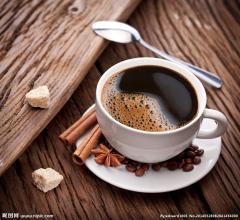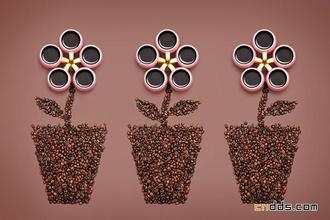How coffee alcohol is formed-milk coffee spot formation causes
How coffee alcohol is formed-milk coffee spot formation causes
Coffeohol was more effective at raising serum cholesterol than caffeeohol, and the mixture of caffeeohol (60 mg/day) and caffeeohol (51 mg/day) was only slightly better at raising serum cholesterol than pure caffeeohol (64 mg/day). Due to the difficulty of purification and the poor stability of this diterpene, the effect of pure caffeinol on serum cholesterol is unknown.
Both substances can be extracted with hot water but remain on filter paper. This explains why Northern European boiled coffee, Turkish coffee and French compressed coffee contain relatively high levels of caffeol and coffee-bean alcohol (6-12 mg/cup), while filtered coffee and instant coffee contain low levels of caffeol and coffee-bean alcohol (0.2-0.6 mg/cup). Although diterpenes are relatively high in steam-brewed espresso coffee, they are consumed in small amounts, making them a minor source of caffeine (4 mg/cup), which affects a range of enzymes in the liver. However, its mechanism and effect on human health are still unclear.
In mouse experiments, both diterpenes have also been shown to have anticancer effects. Epidemiological studies have found that coffee drinking has an inhibitory effect on certain types of cancer, such as colon cancer. Animal data support the preventive effects of coffee. Coffeeol and caffeinol have a wide range of biochemical effects that reduce the effects of carcinogens, including polycyclic aromatic hydrocarbons (PAHs), aflatoxin B1 (a mycotoxin), and others. Different mechanisms of action are associated with different protective effects, but these mechanisms have not been elucidated
The concentrations of these two substances vary depending on the coffee variety, Arabica coffee beans contain caffeine and caffeine, while Robusta coffee beans contain half of caffeine and almost no caffeine. These two substances can make up as much as 1% of the total amount of arabica coffee beans.
Coffeohol was more effective at raising serum cholesterol than caffeeohol, and the mixture of caffeeohol (60 mg/day) and caffeeohol (51 mg/day) was only slightly better at raising serum cholesterol than pure caffeeohol (64 mg/day). Due to the difficulty of purification and the poor stability of this diterpene, the effect of pure caffeine on serum cholesterol is unknown.

Important Notice :
前街咖啡 FrontStreet Coffee has moved to new addredd:
FrontStreet Coffee Address: 315,Donghua East Road,GuangZhou
Tel:020 38364473
- Prev

Introduction to the export volume of coffee beans from the main producing countries in Latin America
The export volume of the main producing countries of Latin American coffee beans used to be the second largest coffee producer only to Brazil, but Colombia, which has been overtaken by Vietnam and ranked third in the world, is the largest supplier of washed beans in the world. Colombia has become synonymous with good coffee after years of image-building. Despite the balanced flavor, thick texture, famous sour taste and aroma
- Next

Introduction of varieties and brands of manors in coffee bean producing areas of three continents in America
Introduction of varieties and Brands of Coffee Bean producing areas on three continents in 1570, when the Turkish army besieged Vienna and failed to retreat, someone found a bag of black seeds in the Turkish army barracks. No one knew what it was. A Polish man who had lived in Turkey took the bag of coffee and opened his first coffee shop in Vienna. At the end of the 16th century, coffee
Related
- What documents do you need to go through to open a coffee shop? coffee shop coffee shop certificate processing process
- How to purchase Coffee beans in small Cafe how to choose a suitable supplier for domestic Coffee supply Company
- How to drink Starbucks Fragrance White Coffee? how to make Australian White Coffee? what Italian coffee beans are recommended?
- The Story of Flora Coffee: the name of Flora Coffee Bean and the implication of the Flowers on Florna Coffee
- How much does a cup of coffee cost? How much is the profit of a cup of coffee? What is the profit of the coffee shop in a year?
- Yunnan small Coffee, known as "fragrant Coffee", introduces the characteristics of Alpine Arabica Coffee producing areas in Yunnan, China
- 2023 latest Starbucks full menu price list how much is a cup of Starbucks coffee what is better to drink the most popular hot and cold drinks recommended
- Starbucks different kinds of Coffee Price list Starbucks menu 2023 Top Ten Best drinks in Starbucks
- Starbucks Spring praise Comprehensive matching Coffee Bean theme Story Packaging implication and taste description
- The cost of a cup of coffee latte American coffee cost price and selling price

